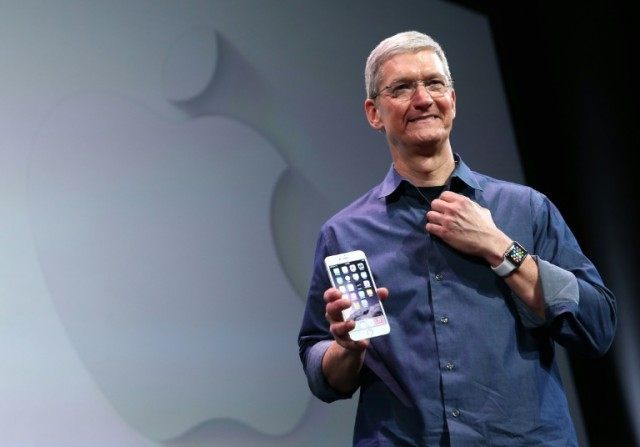WASHINGTON, D.C. — Complying with a court order to help the FBI unlock an iPhone linked to one of the San Bernardino killers would be “bad for America” and set a legal precedent that would offend many U.S. residents, argued Apple’s chief executive officer Tim Cook on Wednesday.
Testifying on Capitol Hill Thursday, FBI Director James Comey conceded that the Apple case may set a legal precedent, noting that the government is not looking to send a message with a court order to compel Apple Inc. to break into a terror suspect’s iPhone.
He told the House Permanent Select Committee on Intelligence that federal prosecutors simply want any potential evidence that may be on the iPhone used by one of the shooters in the December massacre in San Bernardino, California that left 14 people dead and 22 others wounded.
Nevertheless, he acknowledged that Apple is right to claim the outcome may have broader consequences.
Federal prosecutors simply want any potential evidence that may be on a phone used by one of the attackers in the December mass shooting in San Bernardino, Comey said.
Even so, the director agreed with Apple’s claim that the outcome may have broader consequences.
“Whatever the judge’s decision is in California, it will be appealed and it will be instructive for other courts,” Comey told the House intelligence panel. “There may well be other cases that involve the same kind of phone and same kind of operating system.”
“I do think the larger question is not going to be answered in the courts, and shouldn’t be, because it’s really about who do we want to be as a country and how do we want to govern ourselves,” he added. “The San Bernardino litigation is not about us trying to send a message or establish some precedent.”
He later acknowledged before the House Appropriations Subcommittee on Commerce, Justice, Science, and Related Agencies that forcing Apple to give the federal government access to the iPhone would set a legal precedent that privacy activists may find troubling.
“This is the hardest problem I’ve seen in government,” he told the House panel.
However, he noted that the FBI owes it to the victims to find out what happened during the “missing 19 minutes” between when the radicalized Islamic couple carried out the massacre in California and when the couple was killed by cops.
In his first interview since the court order to help the FBI unlock the iPhone came down last week, Cook told ABC News that complying with it would be bad for the United States.
“Some things are hard, and some things are right, and some things are both — this is one of those things,” he said, adding that the FBI was asking for “the software equivalent of cancer” and that he planned to talk to President Barack Obama directly about placing the argument “on a better path.”
“This would be bad for America,” he added. “It would also set a precedent that I think many people in America would be offended by and when you think about those, which are knowns, compared to something that might be there, I believe we are making the right choice.”
Asked whether Apple would take this fight all the way to the U.S. Supreme Court, Cook responded, “We would be prepared to take this issue all the way.”
Prior to the decision by the U.S. Department of Justice (DOJ) to seek relief from a federal magistrate judge in California, Apple’s CEO said there should have been more communication with the Obama administration.
The FBI is a component of DOJ.
“We found out about the filing from the press, and I don’t think that’s the way the railroad should be run, and I don’t think that something so important to this country should be handled in this way,” Cook said in an interview aired on Wednesday’s edition of “ABC World News Tonight.”
Apple, which has until Friday to respond, has vowed to continue to fight the court order.
The iPhone in question has been linked to San Bernardino shooter Syed Rizwan Farook, who along with his wife, carried out the massacre last December.
DOJ wants Apple to help access encrypted information stored on an iPhone 5C “by writing software that would disable its passcode protections to allow an infinite number of guesses without erasing the data on the device.”
“Apple has said the request amounts to asking a company to hack its own device and would undermine digital security more broadly,” notes Reuters.
The iPhone was issued to Farook by a California county that employed him.
Asked whether he could promise that what the FBI was requesting would not “echo beyond” the San Bernardino case, Comey told the House appropriations panel, “The American people need to decide how we ought to be.”
Apple has already filed a motion to vacate in its fight with the FBI over access to a killer’s iPhone.

COMMENTS
Please let us know if you're having issues with commenting.